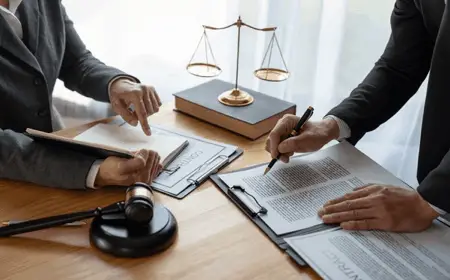If you’re someone who has made the smart decision to speak to a lawyer at Tyson Law Firm, the best thing you can do now is come to your consultation as prepared as possible. The experienced legal team from Tyson Law Firm can help you sort out the real strength of your case, flag potential red flags, and map out a path forward.
You may have a lot to say, and you should say it. But don’t forget: this meeting is your chance to learn, too. The whole point of a consultation is to hear what a trained legal mind thinks of your situation. And sometimes, what your attorney says might surprise you. They may highlight something you thought was minor or downplay something you believed was a big deal.
When you show up on time, focus on facts, bring relevant documents, and keep an open mind, you’re giving yourself the best shot at making progress.
Bring These Documents to Your First Consultation With the Tyson Law Firm
The more clear and complete your materials are, the better your attorney can assess your situation. Whether you’re coming in for a personal injury case, a business dispute, or something more complex, here are some examples of what to bring:
- Documents that tell your story: You could bring along police reports, hospital records, receipts, medical diagnoses, insurance policies, emails, and even texts. If it’s written down and connected to your case, bring it digitally (on a phone or USB drive) or in hard copy.
- Visual or physical evidence: This could include photos of injuries, audio or video recordings, witness statements, financial documents, or anything that adds clarity. Even if you’re not sure it’s important, let your attorney decide.
In personal injury cases, for example, you’ll likely want to bring reports from the police or paramedics, any repair bills (like for your car), medication receipts, and insurance paperwork. Your evidence tells the story when you can’t.
What If You Don’t Have Everything Yet?
That’s okay. In many situations, especially if you’ve been injured, getting all the right materials right away isn’t possible. That’s where your attorney comes in. Once your case begins, your legal team can help gather things like:
- Medical records and future treatment plans
- Accident scene photos you couldn’t take at the time
- Statements from witnesses or expert professionals
- Documents that prove lost wages or destroyed property
If you’re dealing with a sensitive case like therapist abuse or a product liability issue, your evidence might look very different. Your lawyer will know exactly what’s needed for your type of case and help you get it.
Don’t Forget the Small Stuff
Bring anything that shows:
- Missed work or interrupted plans (e.g., canceled trips)
- Communication with the other party
- Records of threats or harassment
- Unusual behaviors or circumstances that shaped your situation
Use the who-what-when-where-why-how method to walk yourself through what you’ve got and what might still be missing. The more thorough you are, the better your attorney can help.
Final Tips Before You Walk In
- Presentation matters. You don’t have to dress formally but aim for clean, neat, and professional. It shows respect and seriousness, which can help set the tone for a focused and productive meeting.
- Organize your materials in a way that makes sense to you. You could assemble everything you have to present in either a folder, a checklist, or a notes app. Having everything in one place saves time and avoids confusion.

